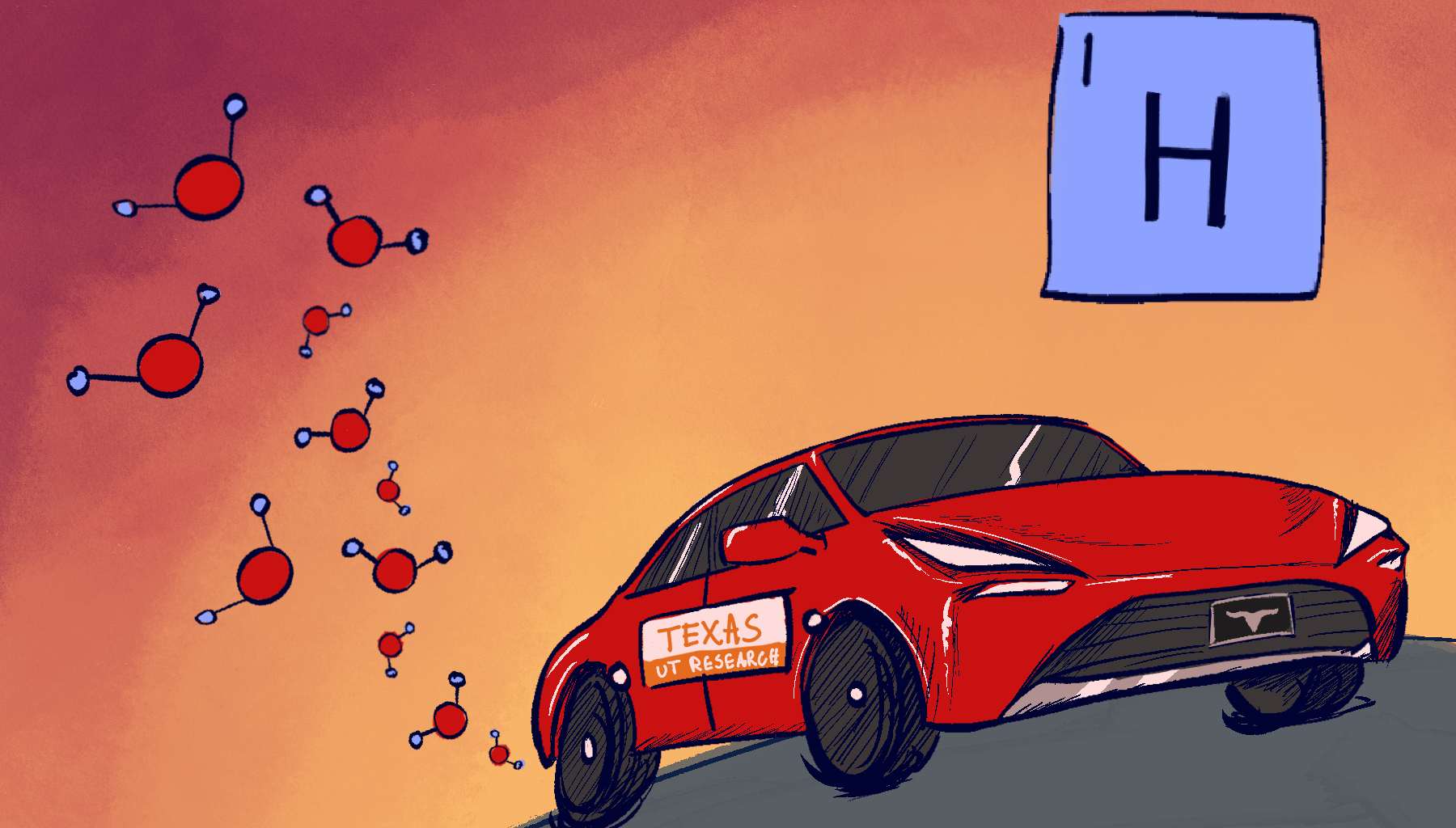Students can now borrow hydrogen-powered vehicles from the UT Center for Electromechanics’ Hydrogen Vehicle Ride Share Program.
The ride-share program, which kicked off in late September, allows UT students and faculty to borrow a Toyota Mirai, a fuel cell electric vehicle powered by hydrogen. Fuel cell electric vehicles work by combining hydrogen and oxygen in a device called a fuel cell. This process generates electricity to power the car, with water vapor and warm air being the only emissions.
Organized under the UT Center for Electromechanics’ Hydrogen ProtoHub — a hydrogen production and research facility — the ride share program seeks to benefit UT students and faculty with hydrogen’s potential as a fuel in Texas, according to a post made to Hornraiser, a UT fundraising site. This initiative will offer opportunities to experience hydrogen technology’s capabilities, said Mike Lewis, the director of the Center for Electromechanics.
“We are trying to get as many different people into the seats of this car as possible,” Lewis said. “It’s all about awareness of the technology.”
The program offers people the chance to temporarily borrow vehicles for a time determined by emailing Lewis or Elizabeth Adams, executive assistant of the UT Center for Electromechanics. To participate in the program, drivers must be at least 21 years old and have completed UT’s driving class before participating in the program. The rental is free of charge.
Lewis said the vehicles’ main benefits are their zero emissions, high mileage and quick fill-up time. According to the U.S. Department of Energy, fuel cell electric vehicles can drive approximately 60 miles on a kilogram of hydrogen compared to gasoline-powered vehicles, which can drive around 25 miles on a gallon of gasoline — the equivalent energy density to a kilogram of hydrogen.
“You don’t have to wait a few hours or even 30 minutes, (like) in the case of a supercharger,” Lewis said. “A zero-emissions vehicle without any compromises is what it is at the end of the day.”
Yet, high costs and a lack of infrastructure make widespread adoption of fuel cell electric vehicles challenging. As it stands, the Hydrogen ProtoHub is the only publicly available hydrogen refueling station in Texas, with costs to construct hydrogen fueling stations averaging $1.9 million, according to the Department of Energy. Hydrogen prices on average ranged between $24 and $36 per kilogram in 2023 — nearly eight times the average price of gas per gallon during the same time period.
“The challenge right now is getting that fueling infrastructure up to the level that the vehicles are,” said Austin Mabrey, a research engineer at the Center for Electromechanics. “That final piece of the puzzle is cost.”
Researchers working with the Hydrogen ProtoHub are continuing to explore the possibility of a hydrogen-powered future. Adams said that infrastructure investments and public support will be crucial in lowering costs and implementing fuel cell electric vehicles.
“We want people to adopt these types of technologies in the future and not be afraid of them,” Adams said.

